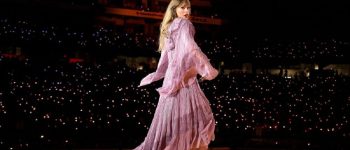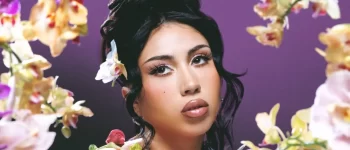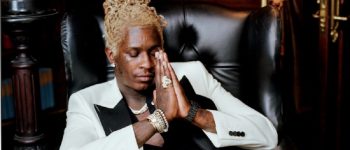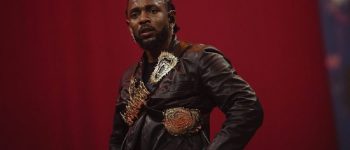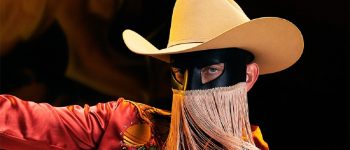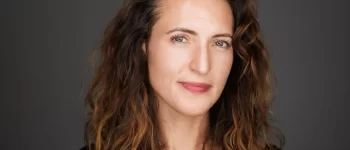Almost 35 years have passed since Tom Rowlands and Ed Simons first met at the University of Manchester — and it’s taken that long for them to be willing look back on their work as electronic duo The Chemical Brothers. Coinciding with the release of their tenth album, “For That Beautiful Feeling,” Rowlands and Simons have mounted a full-court press in 2023 to celebrate their pedigreed discography with a relentless schedule of international tour dates, a series of deluxe reissues of older releases, and a retrospective book, “Paused in Cosmic Reflection,” due Oct. 26, that for the first time draws back the curtain on their chart-topping, award-winning partnership. It’s become a year of introspection that Rowlands admits they agreed to only reluctantly. “It feels like a bit too much fuss,” he tells Variety.
- Drake’s Team on Bringing the ‘It’s All a Blur’ Tour’s Surreal Staging to Arenas: ‘Like Figuring Out a Rubik’s Cube’
- Springsteen Covers Springsteen: Check Out Alana’s Version of Bruce’s ‘I’m on Fire’
- Rick Ross, Maybach Music Group Announce Partnership With Gamma
- Eagles Kick Off ‘Long Goodbye’ Tour in New York, Salute Jimmy Buffett With Two Covers: Concert Review
- Charlie Robison, Country Singer-Songwriter Known for ‘I Want You Bad,’ Dies at 59
Despite that shared aversion to self-reflection, he also indicates that the title for their new album encapsulates an approach they have taken since their earliest recordings. “It’s cool to feel like you’re doing something fresh and it feels vital, but it also is giving you that kind of familiar feeling,” Rowlands says. Ahead of the Sept. 8 release of “For That Beautiful Feeling,” Rowlands spoke about what inspired and how they created the new record, and the way that feelings, beautiful and otherwise, helped them navigate a changing landscape — for the electronic genre, their music and themselves as individuals — over the course of a three-plus decade career.
Given your history of standalone singles, I was surprised after you released “The Darkness That Your Fear” in 2021 that it appears on “For That Beautiful Feeling.”
We are always writing, and it almost felt like “The Darkness That You Fear” was going to be this standalone thing … the lyrics seemed to, whenever I heard them together, make me feel quite emotional when I was in the studio. And it did feel like it had a connection with that time [during the pandemic]. But when we were putting the album together, we’d done a new version of it, and we felt that the different approach to it gave it a new life that felt like it fitted in with this record. So as we were putting everything together, it was like, “Oh, the feeling I want at this point in the record, we have a song that does that.”
“For That Beautiful Feeling,” unlike many of your other albums, has a unifying musical theme. Why was it appropriate to do that here?
It was an idea that we found: you start with the distorted, wrong version of the voice and then we end with that pure version of it. When we found this way of putting the album together and this idea of it starting in one place with spoken word and ending up in this other place, it was like, “Oh, yeah, that now feels complete to me. It now means something.” But I’m still trying to work out what it does mean to me. And I’ll let you do the same. I love that in music or in any creative things, you don’t own the meaning. [The music] finds its meaning to people and that’s good.
Over the last 10 years, you were producing for other people, and Ed took a break from recording. How did his departure impact your collaboration?
It was an important break that happened. It was basically touring that he didn’t want to do. He was doing his Master’s Thesis and he was halfway through the course just before “Born in the Echoes” came out, and he was like, “I can’t stop this thing that I find really fulfilling,” so he stepped away. I think it made him really appreciative of this thing that we’ve created, and this idea that it won’t be there forever. Headlining the stage at Glastonbury or something, there’s only so many times you get to do that. But it’s good because he finished his study, and now he does his [academic] work alongside the band.
How much has producing other artists impacted you differently than just working with Ed?
The collaborative thing is something that we both really enjoy. [For example] with the Beck collaborations, you have to begin with a seed of an idea and you end up with this thing that neither one of us could make on our own. I love that in the studio, when someone pushes you down a different path. One of the interesting things was doing the “Hanna” soundtrack. That was really different, something that we probably wouldn’t have done before. I was mainly working there with Joe Wright, the director, and being part of something else, and it was really liberating being a very particular bit of it and having very structured thing you’re trying to do. In our world, it’s always like the blank page — what are we trying to do? What are we trying to say? And then in that world, it’s like, “it’s very clear. You want to say this. You want to make this feeling.” It did make me feel more open to different ideas and working with different people.
This new album seems to have little callbacks to earlier songs. How intentional are those references?
They’re not conscious things — in fact, in the studio, we for the past 10 or 15 years have banned any reference to any earlier piece. When you’ve made quite a lot of music, referring back to things you’ve done before can drive you mad, so we’ve had quite a tough self-imposed rule in the studio, although we still do it by more oblique references to earlier things. But it’s one of the things I like about our kind of music. Some artists have that revolt halfway through their career or something when they go, “I’m leaving that behind.” I think we still both feel very connected to the music that we made when we started. I think one of the reasons why we kept going so long is that we have all these areas in our music that we like to explore. We feel like we’ve got that freedom on this record to make something like “Feels Like I Am Dreaming,” which when we play it live is a total psychedelic wall of [sound], and then have something like “For That Beautiful Feeling” itself, which is this very delicate, sparse kind of thing. Our band can operate in that kind of world.
Is there something that tells you when you’re done with an album? Or do you get to a place where you go, “we have 12 songs, this is it”?
We chase feelings — it’s one of the things why this album is called “For That Beautiful Feeling,” although it started with an idea of trying to make something really direct and not hiding the emotive bit of it. I haven’t quite worked out how that translated in the sound. Because we don’t really work in a prescribed way… [but] one of the things we did when we were early on, we couldn’t afford all the floppy disks, so we’d never save anything. So every time we’d go into the studio, you had to begin at the same point again. It was kind of frustrating [laughs]. Now, with computers, that’s gone away a bit. But in the studio, it’s a new way of giving yourself some kind of feeling. And every decision is influenced by how you’re feeling at that moment: have you had an argument that morning? Are you feeling frustrated? Are you feeling sad? All of these things inform your choices. “Chemical Beats,” one of our early songs, was just this big club record. But for me, that record, was just real frustration. I was stuck at home, living at my mom and dad’s house, and there was a “when’s life going to begin?” kind of feeling. And even though it’s not explicitly saying that to anyone — it’s not a Smiths lyric — in the sound of it and just this nagging synth line, that day when that was written, that’s why I responded to it.
But there is a continuity of your music, even though it occupies many different electronic subgenres. How do you decide on the sound for each album, if it’s ‘90s house or trance or big beat?
It’s never explicitly stated between us, “Oh, I think we should get back to the vibe we had.” On this album, we were working on the track “The Weight” in the studio, and it was like, “Oh, this really makes me feel like music we used to play at the Heavenly Social.” It’s something of the way that groove worked and the way the samples worked that it was like, “Oh, if we’d had this in our record bag in 1994, we’d have loved to play this.” And for us, that’s exciting… if it doesn’t feel old and it doesn’t feel like something we’ve already really captured, then we’ll go with it. It’s almost trying to find a twist on something. We don’t want to make “Block Rockin’ Beats” again because we felt when we made that song, we totally captured that idea. But then we might be playing with some drums or a bass line or something, and it’ll be like, “Oh, it’s giving me that same excitement that I had — let’s find a different way of framing that.” So, there was always a connection to things, and I think also the process we have of making music, even though we’ve got a fancier studio and stuff, that’s still based around just exploring and experimenting.
Looking at your output this year — the touring that you’ve done, reissues of your catalog, a retrospective book, a new album — is there a reason you’re feeling particularly introspective or philosophical right now about your body of work?
One of the things we’ve always resisted is looking back. We were quite resistant to the book idea [“Paused in Cosmic Reflection”] because it just felt like, we’ll probably make another album, why is now going to be the time to do it? But we were talking with our friend Robin Turner, who’s the guy who put it all together and he’s someone who right from the start of our band — we were DJing in crappy pubs and stuff, he was there, and he convinced us. It was really interesting doing it because we never stopped to talk about anything that we’ve done, really. We’ve always been onto the next thing, forget that, that’s done now, and that has served us quite well. But it was just interesting to talk about it. And Ed and I, being appreciative of the fact that we’re still friends and the friendship has powered this thing along really, realize we couldn’t do so many things and tour so much and be in the studio so much if we weren’t still enjoy each other’s company. It really made us aware of how much fun that we’ve had together.
Has there been a conscious strategy, even in retrospect for rolling all of this out?
This is the part of it that we are less keen on… we think people have heard that music, but then you meet people that have no idea. When we played the Portola Festival last year, it was weird. It almost felt like the people didn’t really know who we were. So it was one of those things of like, “Oh, actually, maybe it’s worth telling people this music we’ve made.”
Between this album and the retrospective book, was there anything that you two together were eager to discuss in more depth? And did you set limitations on pulling back the curtain too much?
That’s the bit I’m uncomfortable about now. Our music is known, and people are interested in it, but they’re not interested in us — and that is a happy place for us both and everyone else concerned. So I don’t know how I feel about it. We’re both quite, I don’t know what the right word — not modest, but a don’t want any fuss kind of thing. And it feels like a bit too much fuss. Although my wife was reading it last night and she was crying by the end of it, so I don’t know what that means.
Source: https://dominioncinemas.net
Category: Music
